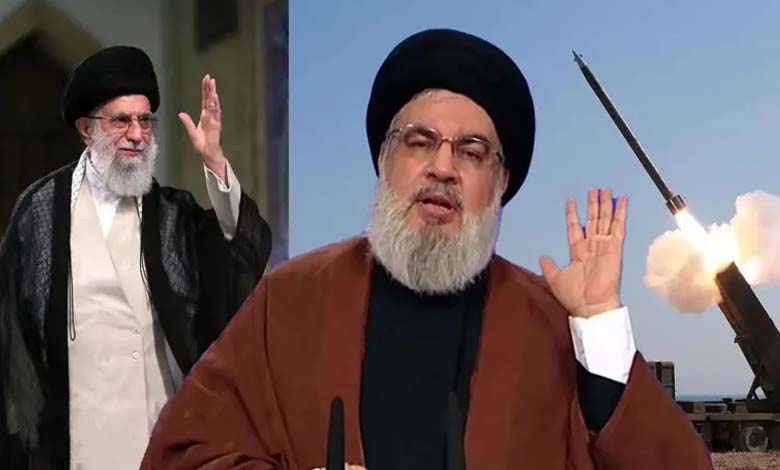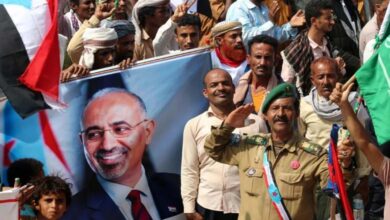Will Iran Abandon Hezbollah for Its Regional Interests?

A report published by the Egyptian website “Al-Bawaba News” indicated that Iran’s support for Hezbollah has led to the imposition of additional international sanctions against it, especially since Hezbollah is the cornerstone of the ongoing confrontation between Iran and Israel.
-
The Role of Hashem Safi al-Din in Hezbollah: Is He Considered the Second in Command After Nasrallah?
-
The Sole Survivor of Hezbollah’s Leadership: Who Is Abou Ali Reza?
The report states that Iranian-backed groups are involved in regional conflicts and military actions that make the area a perpetual hotspot for wars and tensions, placing Iran in direct confrontation with the international community and increasing the diplomatic isolation of the Islamic Republic.
The negotiations surrounding the nuclear deal between Iran and the major powers, particularly the United States, present a significant opportunity for Iran to emerge from the economic isolation caused by international sanctions.
-
A $7 Million Bounty on Its Leader: What Is Hezbollah’s Most Dangerous Unit, “The Shadow Unit”?
-
Hezbollah Faces Two Choices After Nasrallah’s Assassination: Crushing Retaliation or Defeat
The 2015 Lausanne nuclear agreement, known as the “Joint Comprehensive Plan of Action” with the permanent members of the UN Security Council, aimed to restrict Iran’s nuclear capabilities in exchange for lifting the economic sanctions imposed on it.
Iran hopes to renew the agreement to achieve the economic stability it desperately needs internally, especially given the economic decline the country has faced in recent years. However, returning to the deal requires meeting new and stricter conditions, including controlling Iran’s regional behavior and reducing its military influence in the region.
-
Gaza Setback and the Success of Israeli Spies: An Analysis of Hezbollah Infiltration
-
Israel Considers Ceasefire with Hezbollah While Continuing Escalation
The report also noted that the United States and its regional allies see any new agreement as needing to include a reduction in Iran’s support for military arms in the region. Hezbollah represents a complex relationship for Iran. It is not just an ally; it is part of Iran’s strategy to impose its influence in the Middle East, particularly regarding the confrontation with Israel.
Hezbollah is not just a political and military organization; it is a key tool in the regional Shiite alliance that Iran seeks to strengthen. Therefore, it is difficult to imagine that Iran would directly sacrifice this alliance. However, Iran may adopt a dual policy to reduce its public and direct support for some armed groups to appease the international community while maintaining that relationship in a hidden or indirect framework. Such an approach could allow Iran to continue enhancing its regional influence without raising concerns among major powers.
-
Israel Urges Lebanese Citizens to Immediately Move Away from Hezbollah Sites
-
Heaviest escalation between Hezbollah and Israel puts Lebanon on the brink of war
The report suggests that the departure of Nasrallah, as the leader who has embodied the strategic alliance between Iran and Hezbollah for decades, could open the door for changes in the party’s structure and its relationship with Tehran. Iran might exploit this opportunity to gradually alter its support for Hezbollah, and these transformations could give Iran greater maneuverability at the nuclear negotiation table with the West, presenting itself as a more flexible regional power willing to adapt to international demands without losing its entire influence in the region.
Iran finds itself in a complex position that requires decisive decisions regarding its regional policy and strategy in dealing with international powers and supporting its military arms, especially Hezbollah, which is an integral part of its regional influence.
-
The “gouged eyes” could have been avoided… Here’s what Hezbollah overlooked
-
Did Mossad Rig Hezbollah’s Communication Devices in Taiwan?
The site also noted that Iran could use its support for Hezbollah as a bargaining chip. It might pledge to reduce or regulate this support within the framework of broader discussions with the United States, especially if this step could yield significant economic gains.












